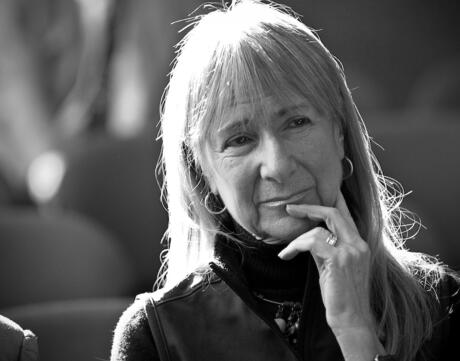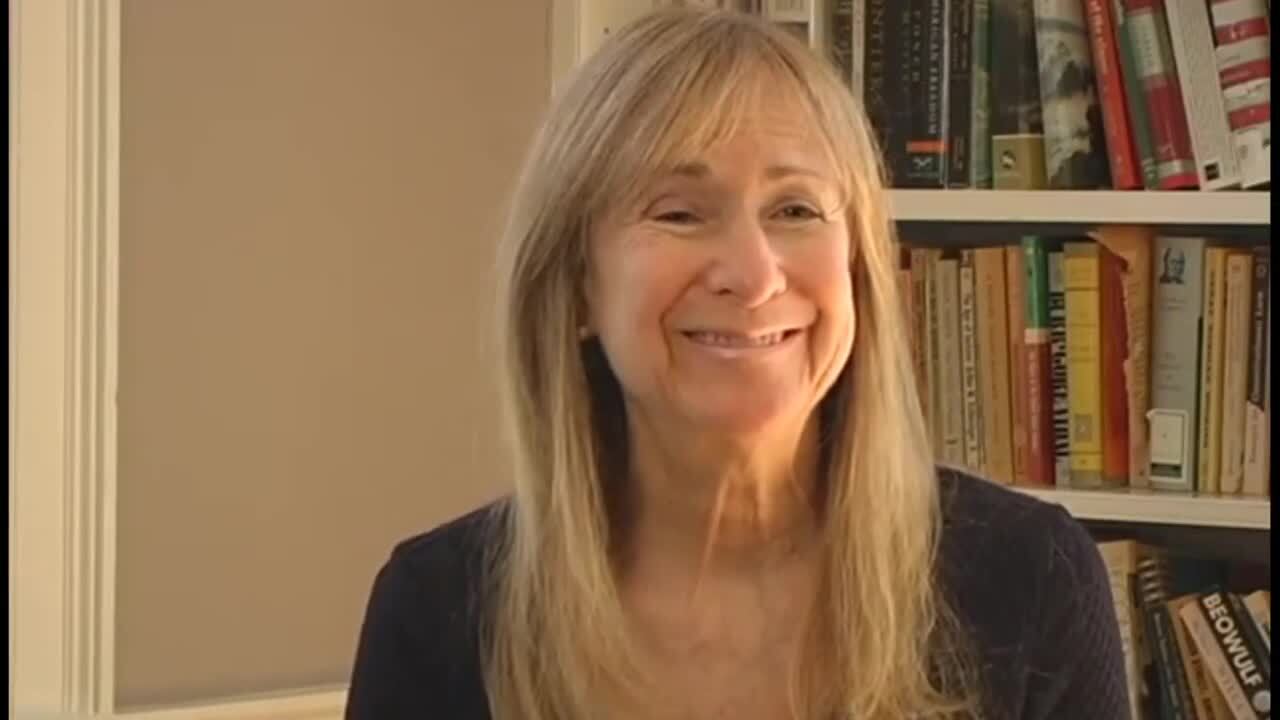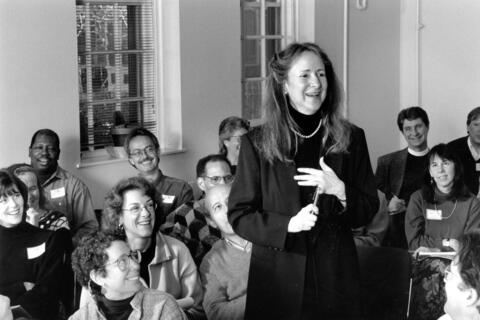
In Memoriam: Margot Stern Strom’s Lasting Legacy
On March 28, 2023 Margot Stern Strom, founder of Facing History & Ourselves, passed away, leaving a legacy that has transformed millions of teachers, students, and classrooms around the world. A brilliant teacher, groundbreaking educational visionary, and pioneering nonprofit leader, she was a force of nature: people who met Margot were forever changed for the better.
In 1976, from a classroom in Brookline, Massachusetts, she co-founded Facing History & Ourselves, leading the organization as Executive Director for 38 years until her retirement in 2014. For Facing History staff past and present, Margot’s passing is a defining moment—we are saying goodbye to a beloved friend and also rededicating ourselves to the pursuit of justice and compassion that galvanized her personal and professional life.
Remembering Margot Stern Strom

Remembering Margot Stern Strom
A video tribute and memorial dedicated to Margot Stern Strom, the founder of Facing History & Ourselves
Margot Stern was born November 10, 1941 in Chicago, Illinois to Fan and Lloyd Stern. When she was five years old the Sterns moved to Memphis, Tennessee. Growing up in the Jim Crow South, she was a daily witness to the stark injustices faced by her Black neighbors. Looking out the window of her classroom during civics class, she could see the Memphis Zoo with its prominent signs indicating the one day of the week “coloreds” were allowed to enter. The hypocrisy of learning about US democracy while staring down at the lack of freedom in her community was a jarring call to action to Margot as a child and later as an adult middle school teacher. And Margot and her family were not immune to discrimination. Growing up Jewish in Memphis came with its own social limitations and intolerance. As Margot recalled, “One Jewish cheerleader at a time was the custom on our high school squad. We had Jewish high school sororities and one Jew a year was chosen as an honorary member of a Christian sorority. We all lived by these rules.”
These are just two of the many formative moments Margot experienced living in the segregated south. But, to those who knew her, it is no surprise that she felt compelled to deeply question the world around her and seek solutions. Margot came from a family of justice-minded individuals, all of whom actively advocated for socially progressive reforms. Of her mother and father, she wrote, “My parents taught me the meaning of social justice, the importance of political participation, and the value of faith. My real education was family-centered, and the lessons learned there nurtured my development and gave meaning to my life’s work, teaching.”
In 1964 Margot realized her dream of becoming a teacher, starting out her career in Skokie, Illinois. Six years later, she, her husband Terry, and their young family moved to Brookline, Massachusetts and settled into the Boston suburb that would become her home for the next six decades. She began teaching eighth grade language arts and social studies at the John D. Runkle School. In the spring of 1975 Margot and fellow teacher Bill Parsons attended a workshop on the Holocaust at the recommendation of Brookline Superintendent Dr. Robert Sperber and Director of Social Studies Dr. Hank Zabierek. This experience opened her eyes to the almost complete lack of Holocaust education in the United States. In her recollections of this workshop, Margot wrote, “I turned to Bill Parsons at the break and we discovered that although we both held graduate degrees, we had been students who were victims of the silence on the Holocaust. And now, as teachers, we were perpetuating that silence.”
From this moment forward Margot set out to teach young people about the Holocaust.
This quote from Margot, reflecting on Holocaust scholarship, provides insight into her idea of teaching history within an ethical framework. Equipping students with the confidence and empathy to create a better future starts with lessons of the past. This is the pedagogical foundation she laid which centered guiding students around identity reflection and their capacity to be changemakers.
The first Facing History courses were taught in Brookline in 1976 using draft lessons piloted in her classroom. These lessons became the seminal text, Holocaust and Human Behavior, which is still a key component of Facing History’s curricular offerings. Her mission also included bringing the stories of Holocaust survivors to classrooms. She learned from the generosity of survivors in sharing their experiences with students and from the grace with which they embraced other survivor testimonies, such as the accounts of genocide in Armenia, Rwanda, and Cambodia. Over the years, Facing History organized a special initiative that brought survivors of the Holocaust and other important historic events into hundreds of classrooms to share their crucial memories with thousands of students across the United States and around the globe.
Initially, Margot didn’t intend to create a global organization. At the time of Facing History’s founding there were very few nonprofits that addressed academic curriculum through a moral lens. But the momentum born of Margot’s passion, her skill as an educator, and the need that both teachers and students had for tools to grapple with the past and present traumas of this world naturally led to expansion of Facing History. Margot’s compelling vision and charisma attracted the interest and secured the commitment of leading educators, entrepreneurs, and philanthropists from Boston and beyond who provided her with the support, counsel, acumen, and resources that fueled Facing History’s growth.
One of these was former Harvard Law School Dean Martha Minow who became a long time friend. When Margot received the 2015 Massachusetts Governor’s Award in the Humanities, she said, “Margot Strom is a visionary. She had a unique idea and she has translated that idea into an organization that has an impact around the world.” She saw every room she was in as a classroom: a place to learn and teach. As an educator, Margot believed in her students—whether they were in middle school, high school, or if they were teachers themselves—and their capacity to think deeply about history, about the world we live in, and about how our choices shape society. She imbued in them the ability to act as moral philosophers, and apply the lessons they learned in class to the world around them. She saw in each student the potential for greatness and the possibility of a better tomorrow.
Educator, Upstander, Visionary

Educator, Upstander, Visionary
Facing History & Ourselves’s founder Margot Stern Strom leading a discussion with educators
When Margot made the decision to hand off the baton of leadership, a great deal of consideration was given to finding a Chief Executive Officer who would not only uphold the values of Facing History, but broaden its reach to more classrooms, schools, and districts. Following an extensive and thoughtful search, Roger Brooks was selected as Facing History’s President and Chief Executive Officer, officially stepping into his role on December 1, 2014. Roger has always held dear the link that connects him to Margot with the understanding that there are certain problems that cannot be solved in one generation and require a convening of minds. "Margot and I formed an instant friendship and partnership,” remembers Roger. “I can't thank her enough for all she did to build this remarkable organization. Her scintillating intellect allowed her to take an idea and get you to see it in a way you never could have before. She deeply understood the need for upstander education and used her charismatic leadership skills to impart this import to teachers and students around the world. What a remarkable legacy of good Margot leaves behind.”
For all in our community, whether you knew Margot for years or you’re just learning about her now, we hope you will join us in celebrating the enormous impact of her work and continue moving forward by being compassionate and brave upstanders for justice.

